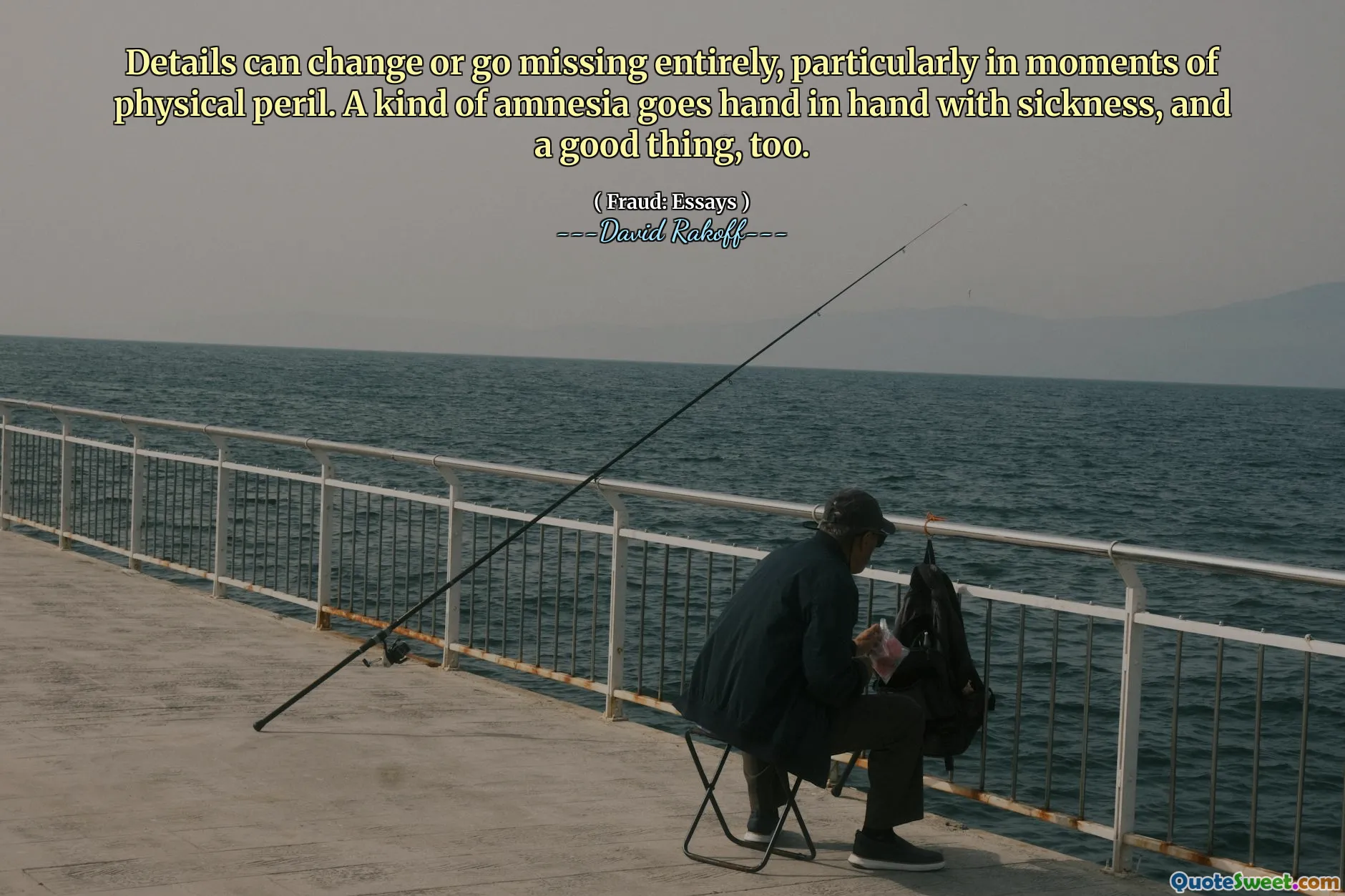
Details can change or go missing entirely, particularly in moments of physical peril. A kind of amnesia goes hand in hand with sickness, and a good thing, too.
In moments of danger or distress, it's common for specific details to be forgotten or overlooked. This phenomenon can be thought of as a temporary amnesia that often accompanies physical or emotional sickness. The brain seems to protect itself by shielding individuals from the overwhelming reality of their situation.
David Rakoff, in his book "Fraud: Essays," highlights how this mechanism can serve a beneficial purpose. By minimizing the focus on painful or frightening details, it allows individuals to cope better during hardships, suggesting that this response may be an adaptive function of the mind in times of crisis.





